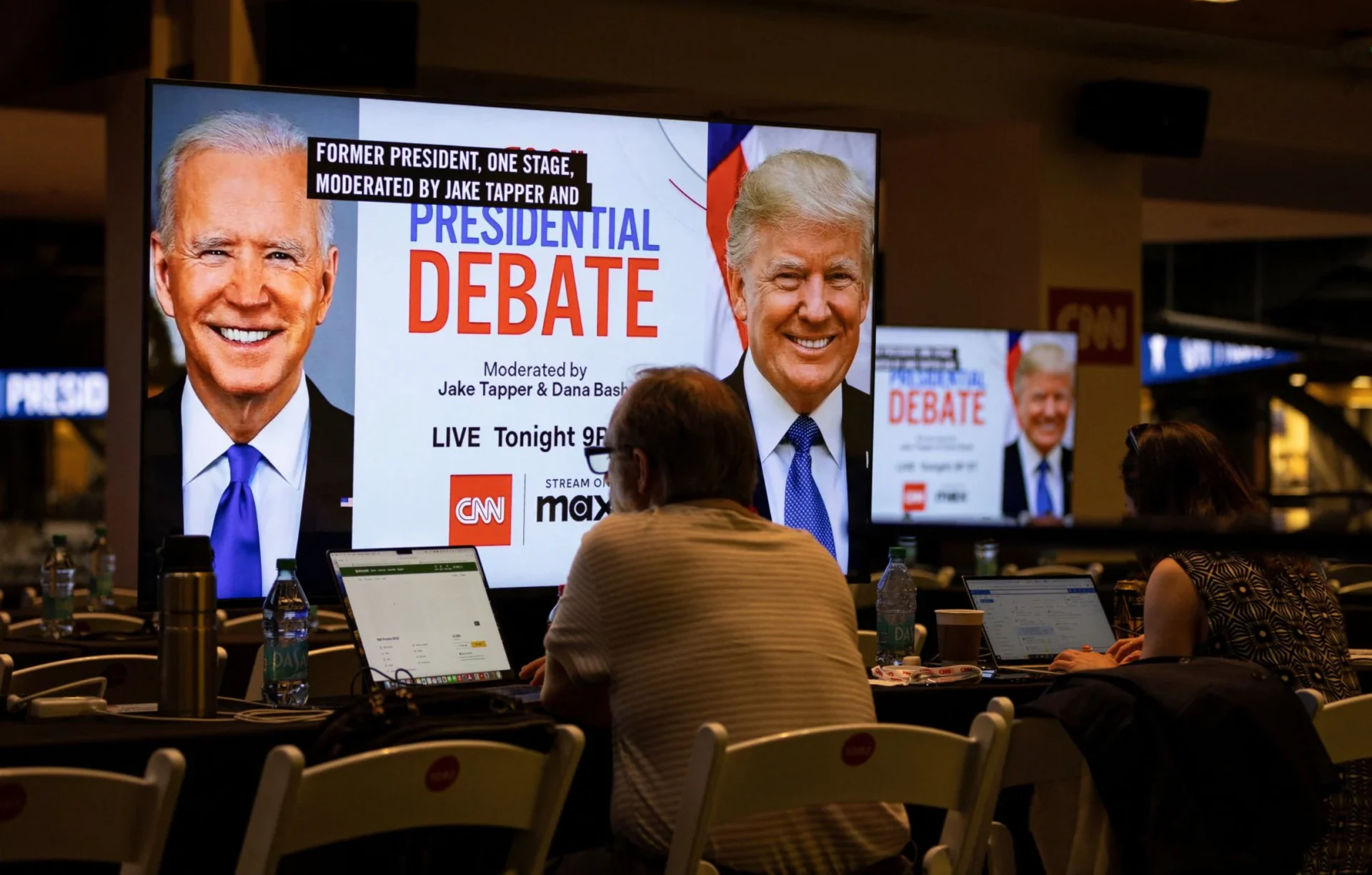In the political history of the United States, the 2024 election campaign is shaping up to be one of the most unusual and polarizing. The race pits two well-known and controversial figures against each other: former President Donald Trump and current President Joe Biden. Both candidates present significant challenges and controversies, which have shaped a campaign full of uncertainties and tensions.
Polarization of the candidates
On the one hand, Republican candidate Donald Trump, despite his multiple legal problems, maintains solid support among a sizable sector of the electorate. His presidency, remembered by many as chaotic, has not reduced the loyalty of his base. Despite a criminal conviction and several civil convictions for defamation and fraud, Trump remains a formidable contender. His campaign has been characterized by a populist approach, resorting to falsehoods and appealing to the frustration of those who feel the system has not provided them with the opportunities they deserve.
On the other hand, Democratic candidate and current President Joe Biden faces a complicated panorama. His approval rating is not high, and his age raises doubts about his ability to serve a second term. The Democratic campaign has focused its efforts on preventing Trump’s return to the White House, a strategy that could discourage voters who are looking for concrete answers to problems such as the high cost of living and the immigration crisis.
In the case of Trump, his base and party forgive him everything, and, in the case of the Democrats, they are united by the desire not to see Trump in charge again and are entrenched behind Biden even though they are not happy with his age.
Faced with this situation, it is the independent voter who will decide the future of the White House.
The surprise of a decisive debate
Biden’s lag in the polls prompted his campaign to take a risky gamble. Dismissing the non-partisan commission that traditionally organizes presidential debates, Biden’s campaign offered Trump’s campaign to hold only two debates, with the campaigns determining the rules. One debate would be in June and the other in September.
The idea of having one debate in June, according to Democratic optics, would have allowed President Biden to regain the narrative and gain traction. They even proposed certain rules that the Republicans agreed to, such as no audience present and that the other opponent would not be allowed to interrupt while speaking.
No one expected the CNN debate on Thursday, June 27 to be so catastrophic for President Biden. This encounter made clear the president’s weakness in terms of agility and energy, which has benefited Trump. Media attention has shifted its focus away from Trump’s legal troubles, especially following a Supreme Court ruling granting near-total immunity to presidents for actions taken while in office. This decision has paused many of the legal proceedings against him, giving him strategic breathing room in the midst of the campaign. The main issue now is Biden, his age and his ability to win and govern.
Biden’s possible exit
Given Joe Biden’s failure in the CNN debate, the possibility of his withdrawal from the race is gaining momentum. Pressure is growing for him to make way for another candidate, but the question arises as to who would replace him and how that transition would be carried out. Kamala Harris, the current vice president, appears to be the natural successor, and Biden could demand her nomination as a condition of his retirement.
If Harris assumes the presidential nomination, the selection of her running mate will be crucial. It is unlikely that Gavin Newsom, Governor of California, will be chosen, as it is not strategic to have both candidates from the same state. Likewise, a two-woman ticket could be seen as an unnecessary risk in such a tight campaign.
Vice Presidential Options
For Democrats, the choice of a vice presidential candidate should be strategic. The ideal figure would be a governor from a key state currently in contention. Names such as Josh Shapiro of Pennsylvania, Tony Evers of Wisconsin, and Tim Waltz of Minnesota are viable options. Of these, Shapiro could be a standout choice, although his recent inauguration as governor could play against him.
Another option would be to look to Biden’s cabinet, such as Pete Buttigieg, secretary of transportation. However, Buttigieg does not offer a significant advantage in terms of electoral votes, which is crucial at this stage.
On the other hand, it would not seem wise to take the risk of seeking a vice presidential nomination within the Senate. The Democrats currently control it by the slimmest of margins and risk losing control in the November elections. Taking out a current senator to put him or her in the race could create an even greater risk, which is simply not worth taking.
The electoral system and its impact
It is vital to remember that the U.S. electoral system is second-tier and based on the electoral college, not the popular vote. This means that only a few competitive states will determine the outcome.
Arizona, Georgia, Michigan, Minnesota, Minnesota, Nevada, Pennsylvania, and Wisconsin are the key states in this election. Biden won all of these states in 2020, but currently holds only a slight lead in Minnesota. Trump, meanwhile, won all of these states in 2016, except Nevada, where he now leads in the polls.
The campaign in these states will be decisive, and it is in these territories where the focus should be placed. If Biden withdraws, the transition must be swift and strategic to generate a positive impact, especially among key voters such as Hispanics and African descendants, or with the young voters who may be discouraged from turning out to the polls. Otherwise, Trump would be assured of victory.
Never before has an election campaign in the United States faced so many challenges and changes in such a short time. The lingering question is whether the Democrats will be able to effectively reorganize to reverse the current trends and prevent Trump’s return to the White House. Whether with Biden or another candidate, the discipline, and strategy of the Democratic Party will be crucial to face this unprecedented electoral battle.
*Translated by Janaína Ruviaro da Silva from the original in Spanish.












